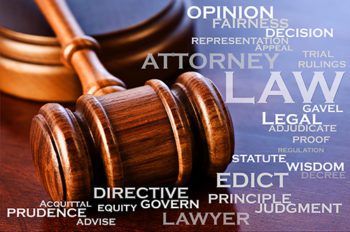This marks the first in a series of articles discussing the FRCP changes alongside the new advances in legal technology. Explore the nuances of the new language and why these amended Rules are particularly significant in our evolving legal landscape. New technology will also play an important role in how the new Rules are applied. This first installment covers one of the most notable changes where the principles of proportionality and collaboration take the lead again in Rule 1.
FRCP Rule 1
By: Adam Bowers, Esq. eDiscovery Consultant, doeLEGAL
FRCP governs the procedure in all civil actions and proceedings in the United States district courts. They should be construed, administered, and employed by the court and the parties to secure the just, speedy, and inexpensive determination of every action and proceeding.
 Rule 1 of the FRCP was amended recently to emphasize that both the “court and parties” share the obligation to achieve the goal of a “…just, speedy and inexpensive…” outcome for civil litigations. This means both court and parties should work in a cooperative effort to bring about the main goals of the Rules. The Rule leads the way and demands cooperation and proportionality to ensure the just outcome for all parties.
Rule 1 of the FRCP was amended recently to emphasize that both the “court and parties” share the obligation to achieve the goal of a “…just, speedy and inexpensive…” outcome for civil litigations. This means both court and parties should work in a cooperative effort to bring about the main goals of the Rules. The Rule leads the way and demands cooperation and proportionality to ensure the just outcome for all parties.
At the heart of the first Rule; the parties and the court have a duty to provide for “The just, speedy, and inexpensive determination of every action and proceeding.” This simple passage in the amendment carries with it a lot of power. In order to fully comply with this statement, an attorney must be constantly vigilant in learning about technology, law changes, the clients’ needs, as well as how best to apply their practice of law. An attorney must evolve with the changes to remain effective. ABA Rule 1.1 comment 8, states it this way, “To maintain the requisite knowledge and skill, a lawyer should keep abreast of changes in the law and its practice, including the benefit and risks associated with relevant technology….” Changes in civil litigation require attorneys to proactively procure knowledge on currently available technology and then leverage it in order to remain compliant with these FRCP amendments. 23 states already have adopted this as their attorney requirements.
Some states have made specific requirements for attorneys to become familiar with the process of gathering, reviewing, and resulting production of electronically stored information (ESI). New York has mandated this competence in Section 202.12 (b) of the Uniform Rules for the Supreme and County Courts, which states “Where a case is reasonably likely to include electronic discovery, counsel shall, prior to the preliminary conference, confer with regard to any anticipated electronic discovery issues.” California is currently considering similar language stating that attorneys must maintain a higher level of technical knowledge in e-discovery by acquiring the knowledge themselves, associating with one that has it, or decline to represent the client. Boldly stated, but it has become increasingly clear that failure to establish a working knowledge of ESI and technology may lead to ethical and legal sanctions.
Rule 1 can be seen as the overarching principle that informs the rest of the FRCP. By now focusing it at the beginning, it provides a lens through which all the other rules should be interpreted and applied. The FRCP discovery provisions have dramatically increased the potential for discovery. Today we find a civil litigation system, with discovery playing a central role in the litigation process. In fact, special magistrates are often called upon to settle discovery issues increasing the costs to both parties. This shows why it is important that the parties view this process through the foundational principle of cooperation, expediency, and cost effectiveness.
Electronic discovery has taken the front seat in the current FRCP amendments. The courts and the parties have a duty to cooperate with the goal of a just and speedy conclusion. The eDiscovery process is an important part of this progression. Attorneys that fail to take the necessary steps, of either informing themselves or hiring an outside professional, will find themselves at a competitive disadvantage and could face censor or sanctions.
No Attorney-Client Relationship or Legal Advice
Communication of information by, in, to or through this Web site or published work and your receipt or use of it (1) is not provided in the course of and does not create or constitute an attorney-client relationship, (2) is not intended to convey or constitute legal advice, and (3) is not a substitute for obtaining legal advice from a qualified attorney. You should not act upon any such information without first seeking qualified professional counsel on your specific matter.





